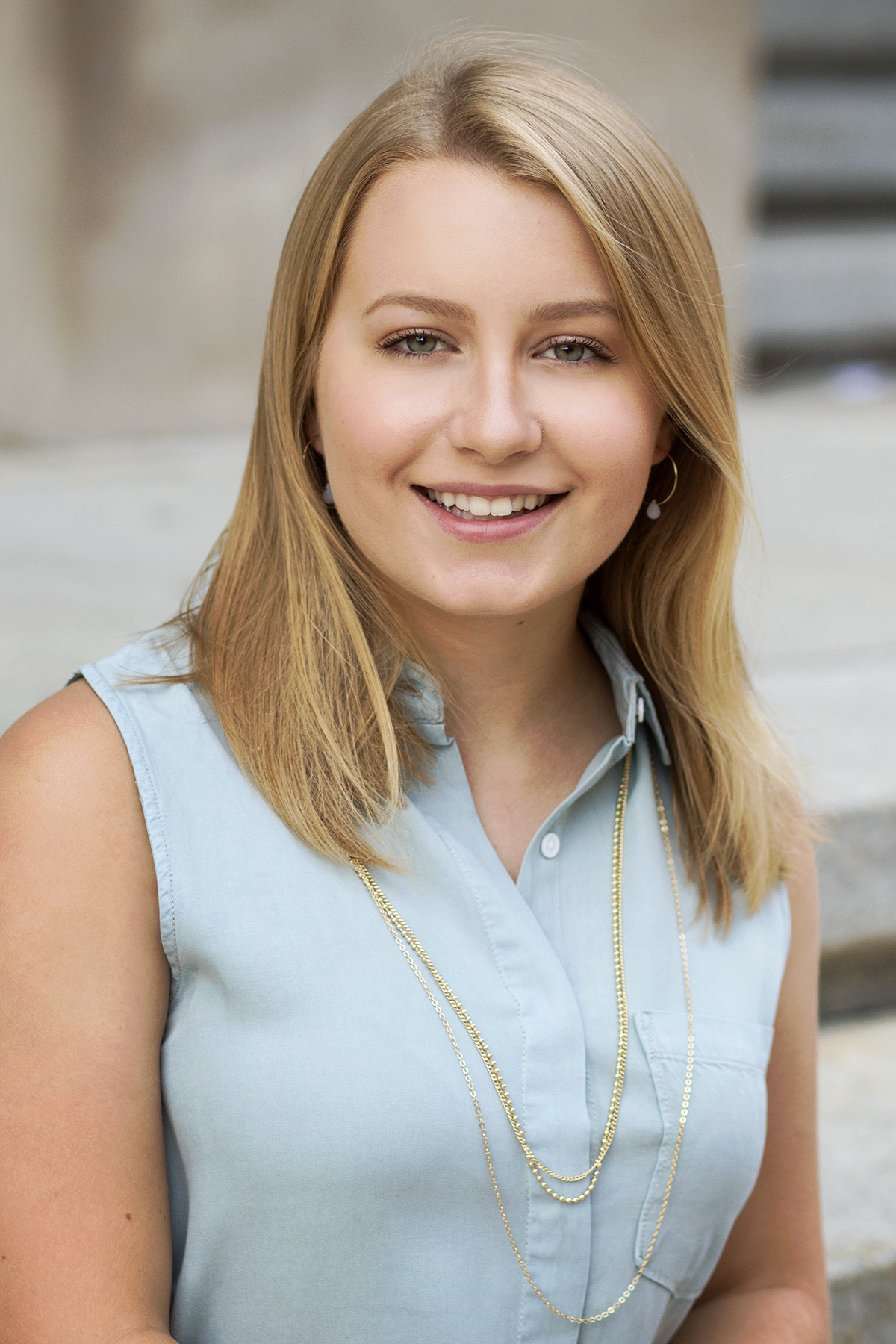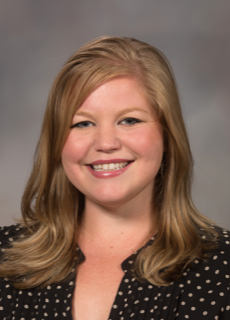It’s a lofty goal that’s right below the St. Baldrick’s logo for all to see: Conquer Childhood Cancers. And it’s a goal that takes a multi-faceted approach, a robust network of hospitals and researchers, and labs with professionals from throughout the age and experience spectrum.
As we learned recently when we interviewed Dr. Jeff Lipton, there’s real value in building a “pipeline” of researchers; and one way this pipeline grows is by funding the training of new researchers at hospitals and research organizations throughout North America.

Through its two- or three-year St. Baldrick’s Fellowship awards, designed for doctors beginning to specialize in childhood cancer, and its summer fellows program, for college students and medical students, lasting one summer, St. Baldrick’s is able fund the early training of researchers who can truly make a difference.
This is thanks to your funding: donors like you are pivotal in helping to build this pipeline, and helping to spark curiosity in a young researcher’s mind – curiosity that can turn into a fulfilling career working to end childhood cancers.
Since the inception of the program in 2005, more than 134 St. Baldrick’s Fellows have launched their research careers and 212 students have been able to learn from leaders in the pediatric oncology field through 175 summer fellow grants. Thank you for your continued support!
Meet Some of the Fellows and Summer Fellows
As St. Baldrick’s announces its latest class of Fellows and Summer Fellows, the organization’s commitment to building the pipeline of diverse research professionals who are committed to joining the fight against kids’ cancers is front and center. To wit, 32 institutions are represented in this group, and more than $2.7 million has been granted, with research areas of focus that vary from pediatric acute myeloid leukemia (AML) to diffuse intrinsic pontine glioma (DIPG) to pilocytic astrocytoma.
In this blog post, we’ll meet three of these researchers – one new St. Baldrick’s Fellow and two Summer Fellows just beginning their research journeys – who are tackling cancers from these unique perspectives.
Rebecca Richards, M.D., Ph.D.: CAR T-cells and the CD93 molecule

There’s no denying that the emergence of immunotherapy, called the “fifth pillar” of cancer research by the National Institutes of Health, has positively impacted the ability to treat a variety of cancers. AML is not yet effectively treated with immunotherapy, so Dr. Rebecca Richards will be continuing her research on how immunotherapy and, specifically CAR T-cells (chimeric antigen receptor), could potentially lead to new treatments for AML.
Dr. Richards, who works at Stanford University in Palo Alto, California, zeroes in on one specific molecule called “CD93” that’s expressed on many AML cells. Her preliminary data show there is promise in the ability of CAR-T cells to target this molecule. This is significant because AML is a diverse disease that will require a multi-pronged approach to kill as many leukemia cells as possible.
This work is in its early stages, but the committee that evaluated the nomination for St. Baldrick’s Fellows saw promise, and Dr. Richards will continue her work at Stanford to determine how effectively targeting the CD93 cells could work in AML patients in the future, leading to possible clinical trials down the road.
Elizabeth Moore, Intern, Helen DeVos Children’s Hospital, Grand Rapids, MI, undergraduate student at Michigan State University, East Lansing, MI: DIPG and the potential of DFMO and Panobinostat

Elizabeth Moore just completed her first year at Michigan State and already shows tremendous promise in research and a passion for building a career in pediatric oncology. As a result, she’s been named one of the St. Baldrick’s Summer Fellows and will join the research team studying how drugs such as DFMO and Panobionstat can work toward attacking cells in a particularly awful cancer called DIPG, which has an overall survival rate of less than 10% two years after diagnosis.
Working with research mentors Joseph Zagorski, Ph.D. and Giselle Sholler, M.D., Moore hopes to learn more about how the drugs DFMO and panobinostat could be used as a co-treatment in targeting cells in DIPG.
Summer Fellows also benefit from exposure to other researchers and to spending an entire summer in a working research lab, giving them the chance to see up close the career potential of the pediatric oncology research field.
Amanda Boudreaux, first-year medical student, University of Mississippi, Oxford, Miss.: Pilocytic astrocytoma and why it spreads

Some Summer Fellows have completed their undergraduate degrees and are beginning medical school and, like the University of Mississippi’s Amanda Boudreaux, they want to continue to explore research as a career. Boudreaux is in her first year at Mississippi, and she’s working with mentor Betty Herrington, M.D., to find out why a tumor called pilocytic astrocytoma may spread in patients.
Pilocytic astrocytoma is the most common brain tumor in children, but it rarely spreads. If it does spread, it can be much more difficult to treat. As the first St. Baldrick’s Summer Fellow to be funded at the University of Mississippi, Boudreaux will not only study why and how the tumor spreads, but, working under Dr. Herrington’s tutelage, sharpen her research skills as she continues pursuing a career in pediatric oncology.
Why Bench Strength in Pediatric Oncology Research is Vital
The future of research hinges on bench strength: the ability to tap into seasoned veterans, newly emerging talented medical professionals, and students that are starting to think about their career options. The roster of researchers that can explore futures in oncology continues to grow, thanks in part to the work of the St. Baldrick’s Foundation and its Fellows and Summer Fellows.
Our list of Fellows and Summer Fellows includes a wide variety of research projects that aim to fight childhood cancers. Learn more specific information about their research projects, by clicking the links provided below.
FELLOWS
Jade Wulff, M.D.
Baylor College of Medicine
Houston, TX
Proposal Title: Targeting integrin-mediated signaling in metastatic Ewing sarcoma
Learn more
Robert Rowe, M.D., Ph.D.
Children’s Hospital Boston
Boston, MA
Proposal Title: The role of the hematopoietic microenvironment in infant leukemia
Learn more
Lisa Maurer, M.D., Ph.D.
Children’s Hospital of Pittsburgh Foundation
Pittsburgh, PA
Proposal Title: GRK2-mediated tumor suppression in lymphoid malignancy
Learn more
LaQuita Jones, D.O.
Cincinnati Children’s Hospital Medical Center
Cincinnati, OH
Proposal Title: Efficacy of Novel FLT3 Inhibitor in Tyrosine Kinase Domain FLT3 ITD (+) AML
Learn more
Jovana Pavisic, M.D.
Columbia University
New York, NY
Proposal Title: Targeting Master Regulator Dependencies in Pediatric Osteosarcoma
Learn more
Alyssa Kennedy, M.D., Ph.D.
Dana-Farber Cancer Institute
Boston, MA
Proposal Title: Targeting Genetic Pathways of Transformation in Leukemia Predisposition
Learn more
Fiorella Iglesias, M.D.
Huntsman Cancer Institute at the University of Utah
Salt Lake City, UT
Proposal Title: Improving T cell therapy by targeting immune escape in neuroblastoma
Learn more
Michael Koldobskiy, M.D., Ph.D.
Johns Hopkins Kimmel Cancer Center
Baltimore, MD
Proposal Title: DNA Methylation Stochasticity in Pediatric Acute Lymphoblastic Leukemia
Learn more
Micah Maxwell, M.D., Ph.D.
Johns Hopkins Kimmel Cancer Center
Baltimore, MD
Proposal Title: Using asparagine depletion to kill MYCN-amplified neuroblastoma
Learn more
Joanna Pierro, D.O.
NYU School of Medicine
New York, NY
Proposal Title: Characterization of the MMSET p.E1099K Mutation in Relapsed Pediatric ALL
Learn more
Angela Steineck, M.D.
Seattle Children’s Hospital
Seattle, WA
Proposal Title: PROs in Pediatric Patients Receiving Early Phase Oncology Therapy
Learn more
Lisa Force, M.D.
St. Jude Children’s Research Hospital
Memphis, TN
Proposal Title: Evaluating Interventions to Reduce Global Childhood ALL Mortality
Learn more
Rebecca Richards, M.D., Ph.D.
Stanford University
Palo Alto, CA
Proposal Title: Development of CAR T cells targeting CD93 for treatment of AML
Learn more
Aman Wadhwa, M.D.
The University of Alabama at Birmingham
Birmingham, AL
Proposal Title: Body Composition and Outcomes in Childhood Cancer
Learn more
Beth Winger, M.D., Ph.D.
University of California San Francisco
San Francisco, CA
Proposal Title: Preclinical assessment of a promising KIT inhibitor for pediatric cancer
Learn more
Nathan Dahl, M.D.
University of Colorado Anschutz Medical Campus
Aurora, CO
Proposal Title: SEC-mediated transcriptional dependency in H3K27M diffuse midline glioma
Learn more
Amanda Winters, M.D., Ph.D.
University of Colorado Anschutz Medical Campus
Aurora, CO
Proposal Title: CD123 as a Stem Cell Marker and Therapeutic Target in Pediatric AML
Learn more
SUMMER FELLOWS
Case Western Reserve University School of Medicine
Cleveland, OH
Proposal Title: 2019 St. Baldrick’s Summer Fellowship Award
Learn more
Children’s Hospital Los Angeles
Los Angeles, CA
Proposal Title: Exosomes in Neuroblastoma Tumor Cell – Stromal Cell Communication
Learn more
Children’s Hospital of Philadelphia
Philadelphia, PA
Proposal Title: 2019 St. Baldrick’s Summer Fellowship Award
Learn more
Cleveland Clinic Children’s
Cleveland, OH
Proposal Title: Prevalence and Function of Myeloid Derived Supressor Cells in Pediatric Patients with Solid Tumors
Learn more
Duke University School of Medicine
Durham, NC
Proposal Title: 2019 St. Baldrick’s Summer Fellowship Award
Learn more
Fred Hutchinson Cancer Research Center
Seattle, WA
Proposal Title: Verification and Validation of Newly Discovered Immunotherapeutic Targets in Childhood AML
Learn more
Georgetown Lombardi Comprehensive Cancer Center
Washington, DC
Proposal Title: From Mesenchyme to Cancer: Dissecting Ewing Sarcoma
Learn more
Helen DeVos Children’s Hospital
Grand Rapids, MI
Proposal Title: Use of DFMO and Panobinostat to Target Polyamine Addiction and Epigenetic Regulation of DIPG
Learn more
Huntsman Cancer Institute at the University of Utah
Salt Lake City, UT
Proposal Title: Childhood Cancer Survivors’ and Parents’ Barriers and Concerns Regarding HPV Vaccination
Learn more
Indiana University School of Medicine
Bloomington, IN
Proposal Title: One-on-One Exercise Program in Adolescent and Young Adult Cancer Survivors with a Certified Clinical Cancer Exercise Specialist
Learn more
Loma Linda University
Loma Linda, CA
Proposal Title: Mechanisms of Biologic Therapy as a Treatment for High-Risk Pediatric Leukemia
Learn more
Oregon Health & Science University
Portland, OR
Proposal Title: Harnessing the Therapeutic Potential of Targeting ROS1 in Pediatric Sarcoma
Learn more
Penn State University College of Medicine
Hershey, PA
Proposal Title: Epigenetic Regulation of Gene Expression in Pediatric Leukemia
Learn more
The Research Institute at Nationwide Children’s Hospital
Columbus, OH
Proposal Title: Analysis of Mitochondrial Atpif1 as Targeted Therapy for Pediatric B Cell Lymphoma
Learn more
The University of Mississippi Medical Center
University, MS
Proposal Title: Molecular Characterization of Disseminated Pilocytic Astrocytoma
Learn more
The University of Tennessee Health Science Center
Memphis, TN
Proposal Title: ERalpha is Silenced in Osteosarcoma by miR-588
Learn more
University of California San Francisco
San Francisco, CA
Proposal Title: Translation Control by Myc and Mycn in Medulloblastoma
Learn more
University of Colorado Anschutz Medical Campus
Aurora, CO
Proposal Title: Advanced Magnetic Resonance Imaging (MRI) to Characterize the Inflammatory Treatment Response in Pediatric Brain Tumor Model
Learn more
University of Hawaii John A. Burns School of Medicine
Honolulu, HI
Proposal Title: RESpect for Pediatric Malignancies
Learn more
University of Michigan
Ann Arbor, MI
Proposal Title: Characterization of the Role of L3MBTL3 in Medulloblastoma
Learn more
Join the fight against childhood cancer.
Register. Fundraise. Show up and shave.

 SBF
Tweets »
SBF
Tweets »